jeffreylinda's blog
According to an emergency dentist in Houston texas, no matter how thoroughly you clean and floss your teeth, you still won't be able to get rid of all the tiny food particles lodged in your mouth's deep crevices. When food particles get lodged between your teeth and gums, this is especially true if you have crooked or misaligned teeth.
The collected food particles gradually transform into plaque, a white sticky substance that forms over 10 to 14 hours before becoming tartar. Tartar is impossible to eradicate, no matter how frequently you brush your teeth. It increases bacterial growth due to plaque and tartar production.
Are regular teeth cleaning any different from deep dental cleaning?
"Deep dental cleaning" and "teeth cleaning" are frequently used interchangeably. The two, however, have clear distinctions. Plaque removal and teeth polishing are part of a regular dental examination that includesteeth cleaning in Houston and dental cleanings to avoid dental decay and periodontal disease.

The deep cleaning Houston entails treating gingivitis and periodontitis and removing bacterial colonies from your mouth. As a result, they treat gum disease with a thorough dental cleaning, which includes scaling and root planing.
How often should we visit dentists for a dental cleaning?
According to uptown dentistry Houston, at least once a year, you must go to a dentist who offers deep cleaning services near me for routine teeth cleaning. Your dentist might also advise more frequent dental appointments if you have dental decay or are more likely to develop the dental illness. You should follow your dentist's advice regarding how frequently you should have your teeth cleaned.
Can deep dental cleaning strengthen a loose tooth?
Periodontal scaling and tooth scaling only get rid of plaque and tartar buildup on the surface of your teeth. It does not strengthen your loose tooth, but it helps preserve your teeth from bacterial deterioration. However, your dentist might combine scaling and root planing if you have a loose tooth. The dentist at Houston tx cosmetic dentistry will smooth the roots of your tooth during root planning to reattach it to the gums and reinforce the loose tooth.
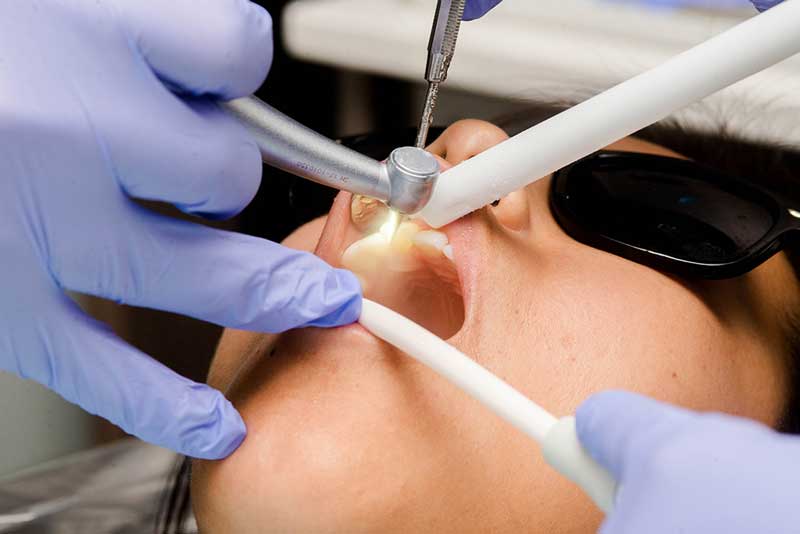
Do deep teeth cleaning cause pain?
NO is the apparent response to this. The patient can be made as comfortable as possible before completing the work. However, any discomfort will be mild and end before the deep cleaning treatment. The slight stings that come with pocket measurement are intolerable for some people. A dentist near me open on Saturday would typically apply a topical numbing gel to lessen the pain.
Can a tooth fall out after deep dental cleaning?
Deep cleaning cannot break the tooth's bond with the gum and bone. Sometimes, a significant deposit of hard tartar can splint teeth together. It may disguise the degree of bone loss and create the illusion of stability. The looseness already there may become apparent when we eliminate that buildup. Thus, following a thorough cleaning, the teeth may feel loose. But the deep cleaning itself does not dislodge them.
Conclusion
The above-provided information tells us about the importance of deep dental cleaning and highlights various factors regarding dental cleaning. For more information, please refer to thedentisthouston.com.
Article Source : https://www.dentistdiary.com/what-is-the-importance-of-professional-teeth-cleaning/
Instead of extracting a severely decayed or broken tooth, a root canal procedure can save and heal it. Cleaning the canals inside the tooth's root gives the phrase "root canal" its meaning. Years ago, root canal procedures were frequently uncomfortable. According to Houston root canal dentists, most patients experience little to no discomfort during a root canal because of advancements in dentistry and local anesthetics. Having a decaying tooth is probably more painful.
Why do we require Root canal treatment?
Dental pulp, the soft interior of teeth, is present. The pulp extends from the tooth's visible crown to the end of its root as it enters the jawbone. Nerves, blood arteries, and connective tissue are all in the pulp. Bacteria can reach the pulp when a tooth has a deep cavity, a crack, or both. Inflammation and pulp damage can also result from tooth trauma. Bacteria and rotting matter can result in a significant infection or a tooth abscess if left untreated, which can cause pulp death, bone loss, and tooth loss.
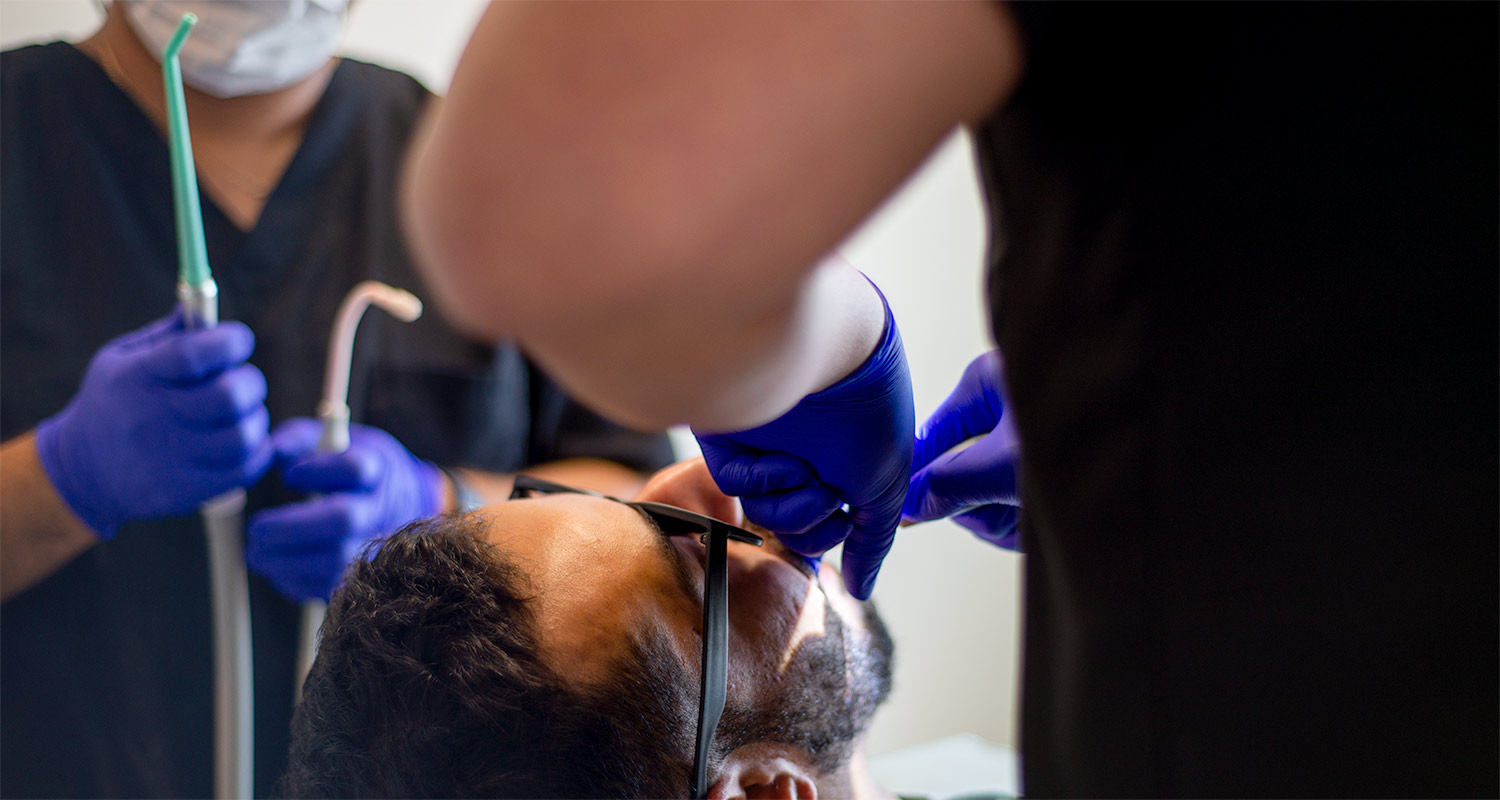
What goes n the process of root canal treatment?
The beginning of root canal treatment
A regularmidtown dentist or an endodontist often performs a Root Canal Treatment. The procedure typically requires one or two visits. Still, occasionally you may need more since some teeth are challenging to treat. To determine the degree of the damage, you first have dental X-rays taken. They may also use a local anesthetic on you during the surgery to lessen pain. They then cover the tooth with a dental dam, which they create to resemble rubber, to keep it safe, clean, and saliva-free. The root canal Houston tx dentists remove the decay to access the pulp chamber and cut apart the tooth's crown.
Clearing up root canal infection
They clean the pulp chamber and root canals once they remove the infected pulp. A root canal specialist Houston may lengthen or change the root canal to provide better access for filling. The root canals are disinfected and dried before being permanently sealed. They occasionally inject the medication into the pulp chamber and root canals to treat an infection. You might require a prescription for antibiotics if the condition has moved outside of the tooth.
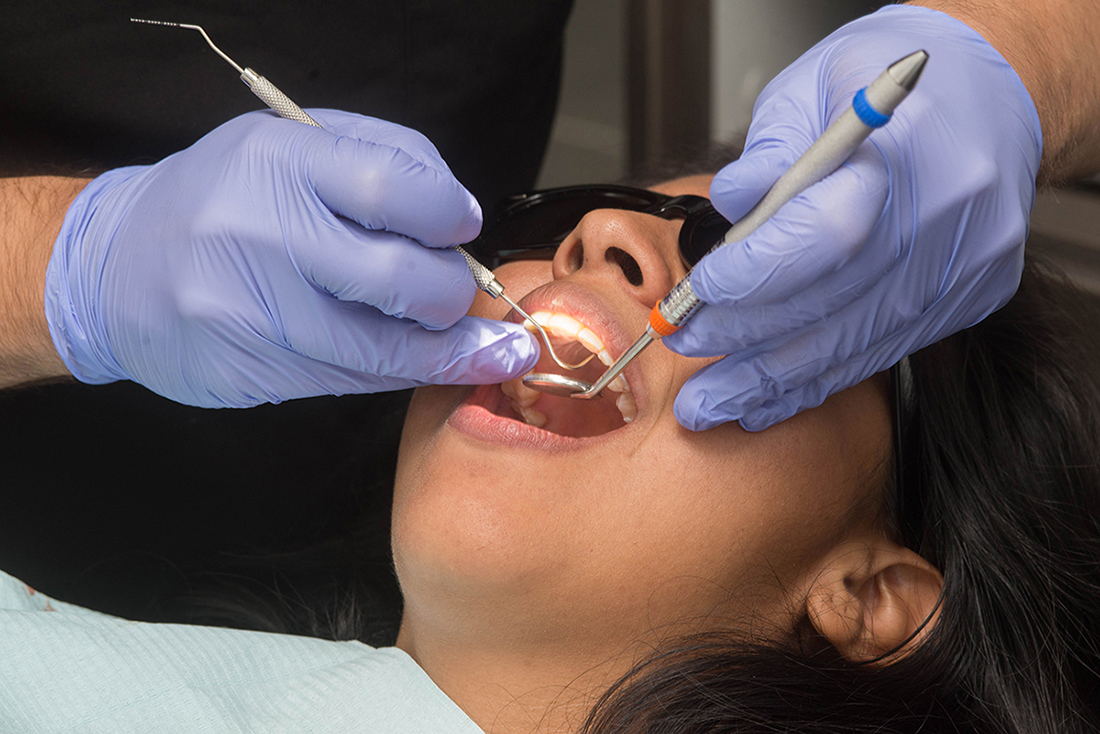
Filling up the root canals
It's time to fill the tooth's interior, including the empty pulp chamber and root canals, after washing and drying. For this phase, you might not require any further anesthesia. The temporary filling, if any, will be removed to gain access to the inner part of the tooth. The dental clinic Houston specialists fill the tooth with a sealer paste and rubber compound. A dental filling is applied to ensure that they shield the root canals from saliva.
The final stage of root canal treatment
The restoration of your tooth completes the root canal procedure. The tooth needs to be shielded from further harm and restored to normal function since it often has a large filling or is weak from severe decay. A Root Canal Dentist Near Me typically achieve this by covering their teeth with a crown, an artificial tooth that looks natural.
Conclusion
The above-provided information helps us learn some beneficial and essential asp[ects regarding root canal treatment. For more helpful information, please visit thedentisthouston.com.
Article Source : https://www.shoutarticle.com/what-are-the-important-aspects-of-root-canal-treatment/
An emergency dental care dentist or a professional surgeon employed by a hospital can remove a patient's wisdom teeth. Your dental expert will examine your mouth if they recommendwisdom teeth removal Houston to help them decide who should do the treatment. Before starting the process, you should negotiate all fees and payment options.
Is it compulsory to administer anesthetics?
Yes, you will receive an injection of local anesthesia to numb your tooth and surrounding area before removing your wisdom teeth. Your dentist or surgeon may provide a sedative if you are highly concerned about the treatment to help you relax. They will typically inject your arm with this. Rarely is a general anesthetic used for wisdom teeth removal. When they carry out the procedure in a hospital, they seldom use it. In this instance, you should be able to leave for home on the same day as the operation.
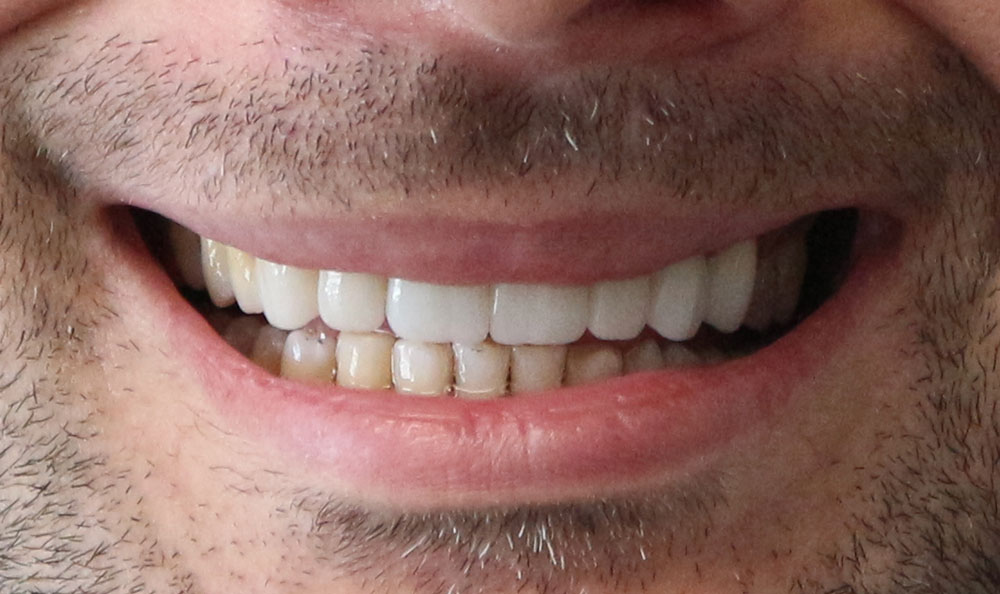
How do they remove wisdom teeth?
A Wisdom Tooth Extraction Near Me specialist will make a small cut (incision) in the gum to gain access to the tooth if it hasn't broken through it. Removing a tiny portion of the bone surrounding the tooth can also be necessary. To remove the tooth through the incision more simpler, they could divide it into smaller pieces. If the tooth has already pierced through the gum, an incision is not as necessary. Before pulling the tooth, you may experience pressure because your dentist or oral surgeon needs to enlarge the tooth socket by rotating the tooth back and forth.
Because the area will be numb, you shouldn't experience pain as they remove your wisdom teeth. However, let your Houston wisdom teeth removal dentist or oral surgeon know if you have discomfort so they can administer additional anesthetic if necessary. The duration of tooth removal will vary, and you can complete simple tasks in a few minutes. Still, more challenging assignments can take up to 20 minutes.
Are there any potential side effects of removing wisdom teeth?
After surgery, most patients suffer from swelling in their mouths or cheeks. And they may not be able to fully open or close their mouths for several hours or even days. Many experience pain immediately after the treatment, although it often passes quickly. However, the cut can be infected if the pain can reappear after four or five days, worsens, and comes with swelling or bad breath. It may occur if the dried blood that seals the wound peels too quickly, leaving it exposed. According to emergency dental care Houston, you can avoid these issues with antiseptic mouthwashes or gels.
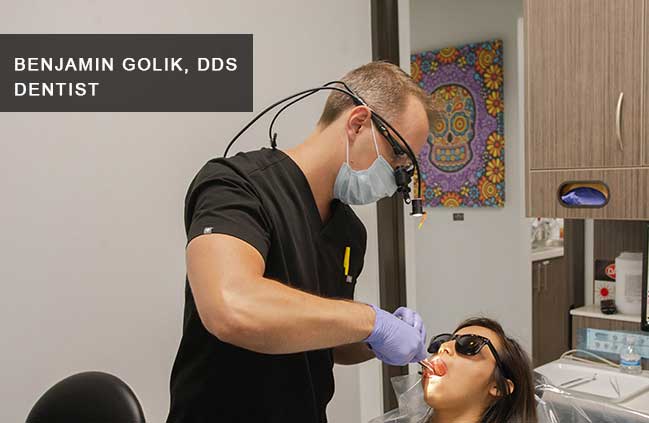
How to manage the pain after the procedure?
According to thedentist in midtown, after surgery, a lot of people use painkillers. Sometimes, painkillers have to them. Ibuprofen and acetaminophen can aid in pain relief following surgery. Acetylsalicylic acid, a component of drugs like "Aspirin," shouldn't be taken before or after surgery because it raises the risk of bleeding. Holding an ice pack to your cheek for a few days following the procedure can help to reduce swelling.
Conclusion
Wisdom teeth extraction is a necessary dental procedure, and the above-given information tells us some beneficial aspects of the wisdom teeth removal procedure. For more valuable information, please visit thedentisthouston.com.
Article Source : https://www.articleslurp.com/how-do-dentists-extract-wisdom-tooth/
A dental bridge is a long-lasting device that bridges the gap left by a missing tooth or teeth. It comprises several parts that join together to fit into the space left by your missing tooth or teeth. You can substitute partial dentures with dental bridges. A bridge can improve your ability to speak and chew and the appearance of your teeth. Gold, alloys, or porcelain are a few materials they use to create a dental bridge. Dental bridge near me specialists generally use porcelain to replace front teeth because it resembles your natural tooth color.
What types of dental bridges are there?
According to dental bridges in Houston, there are typically four types of dental bridges:
Traditional fixed bridge
According to an emergency dental clinic near me, a traditional fixed bridge is the most prevalent kind of bridge. On either side of the pontic are crowned.
Implant-supported bridge
With an implant-supported bridge, one implant is surgically inserted into your jawbone to replace each lost tooth. The pontics are housed in the bridge, which is later positioned over them.
Maryland dental bridge
Front teeth are frequently replaced using resin-bonded bridges or Maryland bridge dental. This dental bridge uses metal or porcelain frameworks with "wings" attached to the backs of your teeth on either side of the space in place of crowns.
Cantilever bridge
According to the midtown dental clinic, there are no longer many cantilever bridges in service. When only one real tooth is on one side of the gap, the pontic(s) are secured by a single crown on that natural tooth.
What are the benifits and disadvantages of dental bridges?
Advantages
- Creating a natural-looking smile and mouth
- Regaining regular speech, as speaking when missing teeth, can make words difficult to pronounce
- Preserving the jaw's bone density where the lost tooth or teeth are by avoiding bone loss there
- Facilitating better meal chewing
- Preventing neighboring teeth from erupting into the void, which could also lead to biting issues and other issues
Disadvantages
- Future abutment tooth damage may jeopardize the bridge.
- When a bridge or crown does not fit properly, bacteria and plaque can enter the structure and lead to tooth decay.
- Crowns have the potential to alter your teeth's structure and your bite.
- A bridge may break if the abutment teeth are not sturdy enough to support it.
- The procedure(s) could weaken abutment teeth and also require dental implants to replace them.
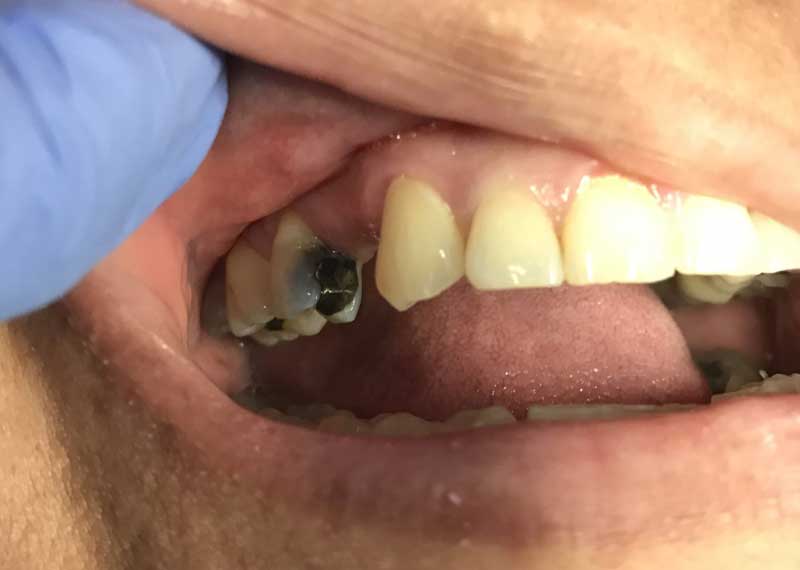
How to care for the dental bridge?
To ensure the bridge's success (depending on the chosen one), it is important to maintain the health and strength of the remaining teeth. Tooth decay and periodontic disease, which can also result in tooth loss, can be avoided with daily brushing, flossing, and antiseptic mouthwash. Your Dentist Open On Saturday orDentist Midtown demonstrates how to correctly clean and floss your teeth. Maintaining a regular cleaning regimen will assist in identifying issues early on when therapy has a better outlook. You must choose a balanced diet to ensure optimum nutrition.
Conclusion
The above information covers many types of dental bridges. You will discover the benefits and drawbacks of getting a dental bridge. For more information, please visit thedentisthouston.com.
Article Source : https://www.articleapprove.com/what-are-the-important-facts-regarding-dental-bridges/
Poor dental health and hygiene are the most obvious cause of gingivitis. It fosters plaque buildup on teeth, which inflames the tissues around the gums. How plaque can cause gingivitis is as follows:
- You develop plaque on your teeth. When the starches and sugars in food mix with the bacteria ordinarily present in your mouth, plaque, an invisible, sticky film primarily made of bacteria, forms on your teeth. They must remove plaque every day since it quickly reforms.
- Tartar is the result of plaque. The remaining plaque on your teeth has the potential to solidify into tartar (calculus), which gathers microorganisms. Tartar irritates the gumline, makes it more challenging to eliminate plaque, and acts as a barrier for germs.
- If they detect Inflamed gingiva (gingivitis). The gingiva, the area of your gum at the base of your teeth, becomes more irritated and inflamed the longer plaque and tartar are allowed to build up on your teeth. Your gums ultimately swell up and begin to bleed. Dental caries, or tooth erosion, could also happen.
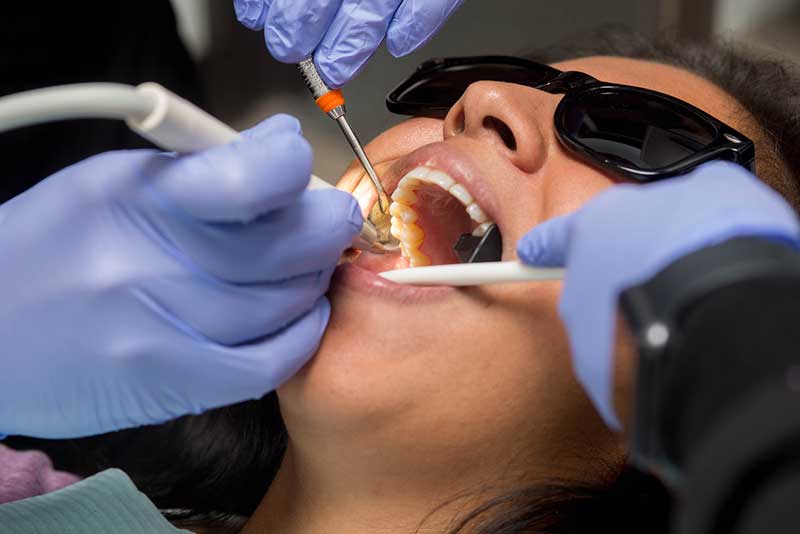
How do they diagnose gingivitis?
Gingivitis is typically identified byperiodontitis Houston dentists based on the following:
- Examine your dental and medical histories, as well as any illnesses that might be causing your symptoms.
- You should check your mouth, tongue, teeth, and gums for plaque and irritation.
- Placing a dental probe next to your tooth beneath your gum line, typically at numerous locations around your mouth, to measure the depth of the pocket in the groove between your gums and teeth.
- Dentists may take dental X-rays to look for bone loss in regions where the emergency walk-in dentist near me observes greater pockets.
- Additional examinations will be necessary. Your dentist could advise getting a medical checkup to rule out any underlying medical concerns if the reason for your gingivitis is unclear. Your dentist could recommend a specialist for Gum Disease Treatment if the stage of your gum disease is advanced.
What does professional gingivitis treatment include?
Professional Gingivitis Treatment includes:
Professional cleaning of the teeth.
Scaling and root planing, a process used to remove plaque, tartar, and bacterial products, will be a part of your initial professional cleaning. It removes tartar and bacteria from tooth surfaces and the gum line during scaling. According to gum disease treatment in Houston, root planning eliminates the bacterial byproducts of inflammation, smoothes the root surfaces to prevent future tartar and bacterial formation, and promotes healthy healing.
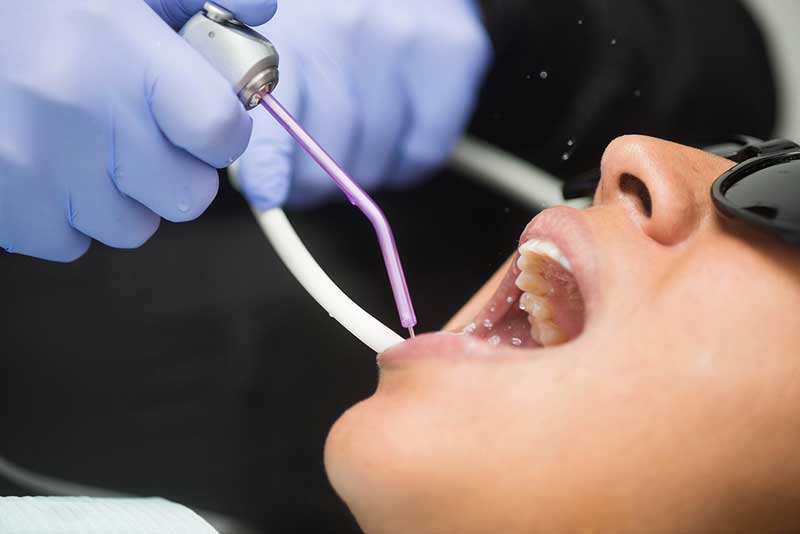
Dental restoration
Your gums may get irritated by misaligned teeth or poorly fitted crowns, bridges, or other dental restorations, making it more challenging to eliminate plaque from your teeth daily. YourHouston uptown dentist may advise addressing issues with your teeth or dental restorations if they are causing your gingivitis.
Ongoing treatment
After a thorough professional dental cleaning, gingivitis generally fades away if you maintain proper oral care at home. Your dentist at anemergency dental clinic will work with you to develop a home care regimen that works and a schedule for routine checkups and cleanings.
Conclusion
The above article details the causes and diagnosis of gum diseases and highlights the treatment options for gingivitis. For further helpful information, please visit thedentisthouston.com.
Article Source : https://www.techsmarttips.com/what-are-the-main-causes-of-gingivitis/

